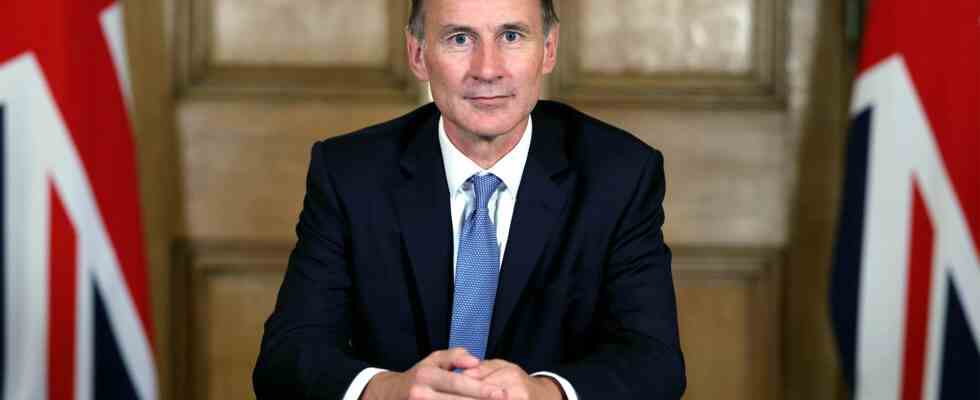Status: 17.10.2022 1:42 p.m
The new British finance minister, Hunt, is largely withdrawing the tax package that the government only announced in September. “Almost all” planned tax breaks would be reversed, he said when presenting his budget.
Just three weeks ago, then British Finance Minister Kwasi Kwarteng presented a tax cut and economic stimulus package that he had put together with Prime Minister Liz Truss. His successor, Jeremy Hunt, who was appointed a few days ago, has now announced that he will radically cut the tax plans. He’s withdrawing “almost all” announced tax cuts, Hunt said.
The one percent reduction in the basic rate of income tax, which should come into force in the coming year, will not happen with him. The announced energy price cap will not apply for two years as announced, but will be reviewed in April 2023. The massively criticized abolition of the top tax rate has already been abolished. Hunt announced that the tax changes would bring the state an additional £32 billion (€37 billion) a year.
The medium-term outlook on fiscal planning is due to be published on October 31. Over the weekend, Hunt consulted with Truss, central bank governor Andrew Bailey and the head of the debt management department.
Measures against the financial chaos
With the speedy release of details of the tax and budget planning, Hunt appears to want to end the turmoil in the financial markets that has arisen over unclear financing of the previously announced £45 billion tax package. Yields on UK government bonds had skyrocketed and the pound had collapsed against the US dollar.
Truss only fired the previous Finance Minister Kwarteng on Friday and replaced him with ex-Foreign Minister Hunt. In this context, she had already announced adjustments to her package of measures “to convince the markets of our budgetary discipline.” The most important specific point was to “maintain the corporate tax increase planned by the previous government”.

